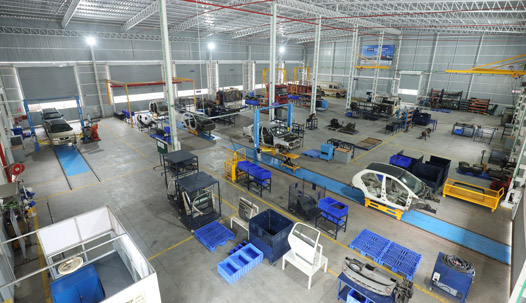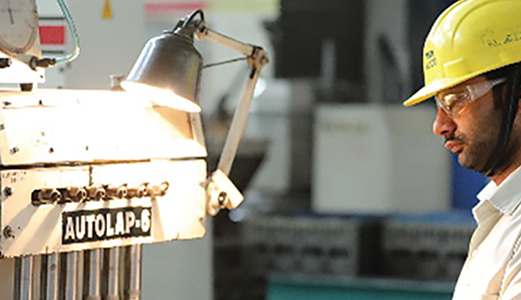
Our ambition
Our dedication to nurturing planet resilience is shaped by the overarching vision of the Tata Group, as reflected in Project Aalingana. We firmly pledge to integrate sustainability into our business strategy, emphasising decarbonisation, circular economy principles and the preservation of the natural environment.
Driving Net Zero
With an unwavering vision, we dedicate ourselves to achieving holistic decarbonisation across our business, encompassing Scope 1, Scope 2, and Scope 3 emissions. Our aim is to achieve Net Zero greenhouse gas emissions for our passenger and commercial vehicles businesses by 2040 and 2045 respectively. We are committed to sourcing 100% renewable electricity in our operations by 2030 and setting interim science-based targets, ensuring a sustainable and low-carbon future.


Our commitment to Science Based Targets initiative
We are committed to both long-term and near-term decarbonisation pathways by setting interim targets in accordance with the Science Based Targets initiative (SBTi).
Decarbonising our products
Tata Motors was the first in India to mainstream EVs for personal mobility. With an aim to make EVs both aspirational and affordable, we’ve aligned our product plans with our decarbonisation and Net Zero targets. These include a whole spectrum of clean alternatives – across battery EVs, hydrogen fuel cell vehicles and hydrogen ICE vehicles.
Using renewable energy
We are committed to decarbonising our operations through a shift to renewable energy (RE) sources. Collaborating with power companies, we are actively advancing our renewable initiatives.
Our RE strategy focuses on three approaches:
In-house generation through rooftop solar power
Investments in captive wind power
Power purchase agreements with RE producers
Pioneering circular economy
We are focused on optimising the use of virgin materials and steadfastly moving towards a circular economy approach. We adopt a comprehensive strategy that encompasses materials, energy, lifetime, and utilisation, forming a framework that optimises value and minimises resource extraction. By aligning these elements, we unlock the complete potential of circularity, fostering a sustainable future for generations to come.
Responsible use of resources

Tata Motors acknowledges the significance of water as a shared and scarce resource. We are committed to using water efficiently by maximising effluent recycling and re-use at all our manufacturing plants, and minimising leakage and wastage. We have created water bodies and ground water recharge structures within our manufacturing sites wherever feasible. Going forward, our approach will be holistic and encompass all aspects of sourcing water, its optimal utilisation and intensifying recharge efforts for achieving ‘Water Neutral’ status by 2030.

Re.Wi.Re - 'Recycle with Respect', our innovative franchise-based Registered Vehicle Scrapping Facility (RVSF), reflects our commitment to sustainable mobility. By organising vehicle dismantling, we reduce pollution from end-of-life vehicles and enhance scrap handling practices. We continuously strive to improve our products’ recyclability through easy disassembly and the use of sustainable materials.

Our Prolife initiative revitalises vehicle components such as engines, clutch plates, clutch discs and cabins to match original equipment (OE) specifications. These used aggregates are restored to a like-new condition at a significantly lower cost, enhancing fuel efficiency by 5-10% with substantial environmental advantages through extension of life of vehicles.

We focus on deriving value out of all types of waste and ensuring their safe disposal. We strive to continuously maximise recycling and co-processing to ensure no waste is diverted to landfill or incineration facilities. Our internal Circularity Framework guides us to achieve ‘Zero waste to landfill’ status by 2030.
Preserving nature and biodiversity
Recognising nature’s crucial and unifying role in the earth’s systems, we are dedicated to conserving biodiversity. Tata Motors' approach to preserving nature and biodiversity in our operational area and value chain includes conserving habitats around our operating sites, aligning with scientific methods to map and set targets across our value chain, and undertaking flagship projects for nature-based solutions beyond our value chain.





